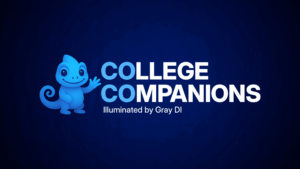Once the beating heart of higher education, humanities programs have spent recent years dodging headlines about declining enrollment, shrinking departments, and budget cuts. Back in 2022, I wrote a piece, Fall Back Careers for Humanities Majors, responding to a Washington Post article that “bemoaned that 48 percent of humanities majors would choose a different field of study in hindsight.” Citing a Federal Reserve Study, it almost felt like we humanities majors needed to be scared into “better choices.”
But don’t write the obituary on the humanities just yet. There’s a quiet revolution happening in English, history, philosophy, and the liberal arts writ large. And it’s not about nostalgia; it’s about reinvention.
I would be remiss if I did not paraphrase Bob Atkins, author of Start, Stop, or Grow?, that the re-evaluation of the Humanities is not a recent phenomenon. He reminds us that in the 1970s, the very relevance of Latin and Greek, once cornerstones of a university education designed to prepare students for the ministry, was intensely debated, leading to the downsizing or discontinuation of many programs.
A New Kind of Humanities Degree
Now, 50 years later, take Merrimack College’s bold move in 2025. The school launched a Bachelor’s in Humanities with a modern twist: students build their personalized interdisciplinary pathways, fusing traditional coursework in the liberal arts with professional tracks such as:
- Digital media and communication
- Global public health
- Social entrepreneurship
- Environmental studies
This isn’t the traditional humanities degree that I achieved as a student back in the stone age. It’s a career-aligned, customizable education model designed to produce thoughtful, adaptable professionals with both deep cultural literacy and job-ready skills.
The program blends timeless inquiry with real-world application. Students won’t just study great thinkers but can learn to become thoughtful leaders, applying humanistic insight to today’s most complex challenges.
Why Interdisciplinary College Programs Offer Growth Opportunity
I don’t believe the pivot toward interdisciplinary humanities will be a trend, but rather a response to student demand and employer need. Take a look at current LinkedIn job postings, and you will quickly see that today’s employers value those “soft skills” (how I hate that phrase), such as critical thinking, ethical reasoning, complex communication, and cultural competency.
But they also want applied knowledge. New humanities degrees are making this possible by weaving in skills from business, STEM, and the social sciences, without losing the reflective, analytical core that defines the field of humanities.
Other schools are following suit:
- Arizona State University offers a BA in Humanities (Digital Culture)
- North Carolina State introduced Science, Technology & Society as a hybrid humanities option
- University of Washington promotes Humanities for Leadership & Service
Career Pathways That Go Beyond the Cliché
As an undergrad, I was given the impression that humanities majors can only teach, become editors, or attend law school. While those are still strong pathways, according to Gray DI data, today’s grads are also landing jobs in:
- Management
- UX design and content strategy
- Climate policy and advocacy
- State and Federal legislatures
- Ethics in tech and AI
- Cultural curation and digital archives
- Corporate social responsibility
With AI and automation reshaping the workforce, the human-centered skills cultivated by the humanities are becoming more essential, not less.
Looking Ahead
We may just be entering an era when the humanities re-emerge—not as a throwback, but as a vital framework for building smarter, more ethical, more connected futures.
So, the next time you hear someone say, “the humanities are dying,” remind them: They’re just getting reimagined.




